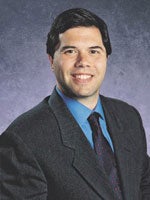On Friday July 24, President Barack Obama ’91 announced that the United States will sign the United Nations Convention on the Rights of Persons with Disabilities, joining more than 100 other nations. The Harvard Law School Project on Disability played a prominent role in the negotiations leading up to the convention, which is the first global human rights treaty of the 21st century.
HPOD was represented at the White House ceremony on Friday afternoon by the project’s Executive Director Michael Stein ’88, Cabell Professor at William & Mary Law School and frequent visiting professor at HLS. An expert in disability law, Stein played an important role in the convention’s drafting and its adoption by the U.N. in 2006. The convention has since been signed by 139 nations and ratified by 59.
“The United States signing of the CRPD and submitting it to the Senate for ratification reaffirms American commitment to rejoining the global community generally, and to continuing leadership in the area of disability law and policy,” said Stein, who will attend the signing at the U.N. on July 31.
The convention took legal effect one month following the 20th national ratification, on May 3, 2008. Under the direction of Stein and HLS Professor and HPOD Chair William Alford ’77, the project has been working to foster the convention’s implementation. HPOD’s work is concentrated mainly in Bangladesh, China, Korea, the Philippines, South Africa and Vietnam, with growing requests for its assistance from several other nations. HPOD offers scholarly research, legislative development, training programs for disabled persons organizations, and assistance to foreign academic institutions.
